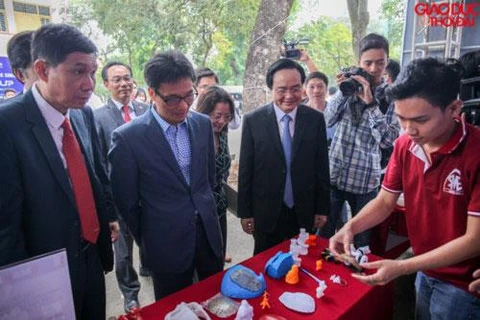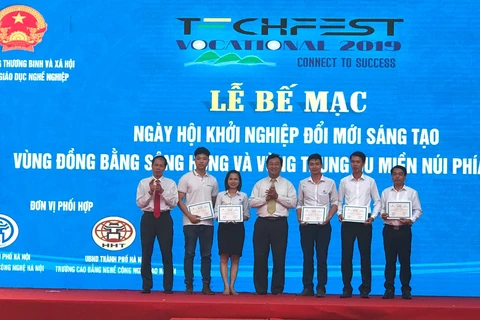Hanoi (VNS/VNA) - In the absence of suitable legal framework, Vietnamese start-ups are struggling to secure much-needed capital while investment funds have difficulties navigating the country’s numerous regulatory barriers, said fund managers and policy researchers.
Nguyen Ngoc Thu from the Vietnam Innoventures Fund said while start-ups and investment funds are recognised under Government Decision 38/2018/ND-CP, Vietnam has yet to produce laws to govern their activities. The lack of effective regulations has made setting up start-ups and securing investment a particularly daunting task right.
As the country was rapidly adopting and adapting to latest developments in the world of start-ups, many in Vietnam have had no other choice but to register their businesses outside of the country to gain access to capital, according to Director and Country Representative of NexTrans, a Korea-based investment fund Le Han Tue Lam.
Lam said investors were often hesitant to make financial commitments to domestic start-ups due to Vietnam’s overly complicated capital regulations.
Vietnam still does not have necessary legal frameworks and mechanisms to oversee new business models, making it even more difficult for new start-ups to form and begin operations, said Chu Thi Hoa, deputy head of the Institute of Legal Science under the Ministry of Justice.
“New business models and methods to call for investment capital are changing fast, especially in the fields of cryptocurrency, fintech and sharing economy,” Hoa said.
“The fact that Vietnam has yet to produce a proper law for start-ups activities is only making it worse for businesses to run.”
She said while Vietnam was still learning the ropes with new tools to raise funds such as initial-coin-offerings (ICO) and security-token-offering (STO) elsewhere in the region start-ups have already moved on to more secure and effective methods such as initial-exchange-offering (IEO).
Hoa called for the immediate implementation of regulatory sandboxes, which allows policymakers to pilot and test regulations in a small-scale and controlled environment, for start-ups funding.
“Despite Vietnam’s well-positioned place to become the world’s new blockchain centre, this regulatory void may just waste away out chance to take advantage of the new technology,” she added.
This approach was said to be particularly suitable for testing funding methods and will allow Vietnamese start-ups to stay in the country instead of setting up shop elsewhere.
“Running such sandbox programme with a high degree of transparency and efficiency will help keep million-dollar businesses in the country,” said Nguyen Thy Nga, director of V-Startup./.
VNA























